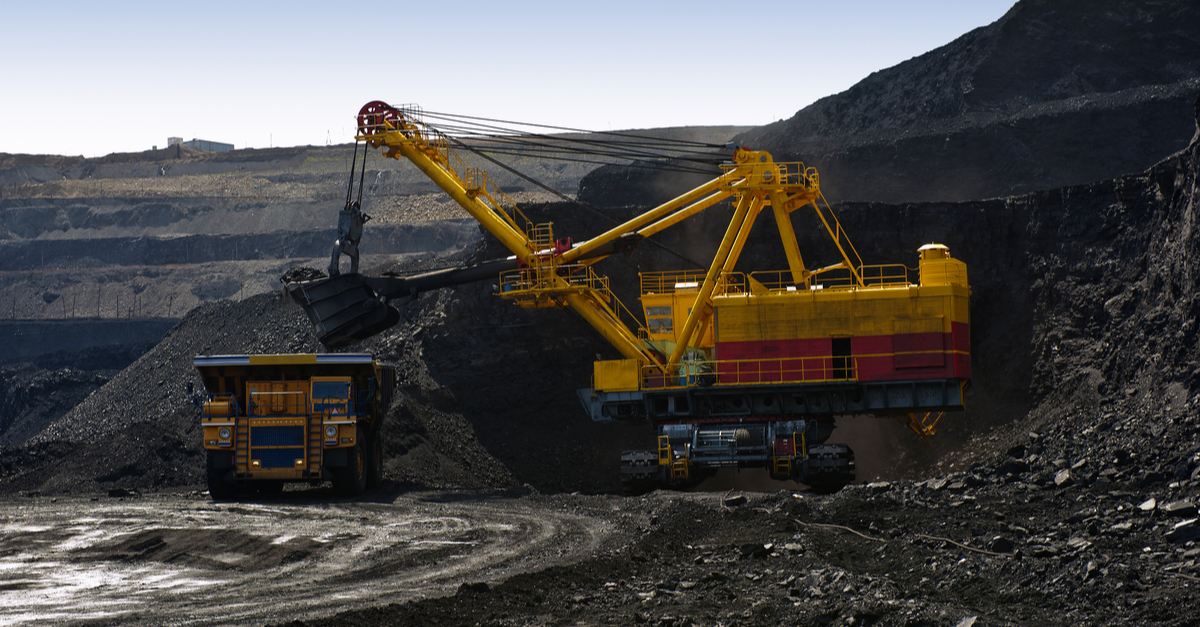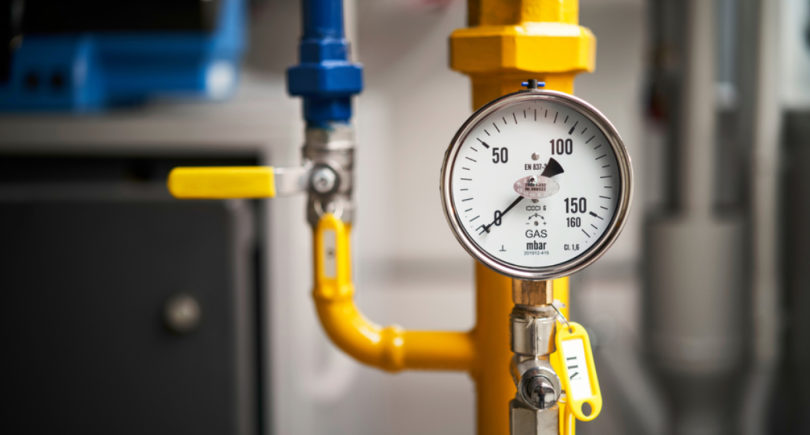
Posts State Cabinet of Ministers 2237 01 August 2022
The State Geology, on the contrary, believes that the changes will remove obstacles to the work of mining companies
The military aggression of the Russian Federation against Ukraine raised, among many other issues, the quality of public administration in Ukraine. The country has been at war for the sixth month, and the level and quality of public administration in many areas has remained at a low level.
Even in the conditions of war, many state bodies continue to engage in “paper” and largely unproductive work, conducting only the presence of activity. Instead, others do something, but with active PR, but most often this harms the business, which actually needs to be supported as much as possible in the current conditions.
Suboil changes
Full-scale Russian aggression forced a response to the challenges facing the economy. In March, the Cabinet of Ministers (CMU) Resolution No. 314 was adopted, which regulated the issue of automatic extension of the validity period of special permits for the period of martial law and the suspension of the application period for receiving public services.
“However, the issue of postponing the deadlines for the works provided for in the agreement on the conditions of subsoil use has not been settled. Also, because of the war, there were delays in the publication of the unit price of marketable products, which made it impossible to calculate the initial sale price at the permit auction. This hampered the granting of permits without holding an auction and putting new plots up for auction. The question of determining the ultimate beneficiary of the applicant company became urgent, because the Russian invasion is also taking place in the economic sphere,” says Roman Opimach, head of the State Geology and Subsoil Service of Ukraine (Derzhgeonedr).
At the end of July, the Cabinet of Ministers made changes to four normative acts that regulate the use of subsoil in Ukraine. In particular, they concern:
- The procedure for granting special permits for subsoil use without holding an auction;
- The procedure for conducting electronic auctions for the sale of special permits for subsoil use;
- Methods of determining the value of geological information obtained at the expense of state budget funds;
- Methods of determining the initial sale price at the auction of a special permission to use the subsoil.
According to the head of the State Geology, in order to solve the above-mentioned problems it was necessary to make changes to the regulatory legal acts, at the same time amendments were proposed that solved the painful problems: frequent disruptions of auctions due to a low guarantee fee, unsettled grounds for making changes to the agreement on terms of use underground
Key changes for subsurface users include:
- automated calculation of the cost of geological information and the amount of the fee for granting a special permit for the use of subsoil, which will make it possible to speed up the procedure by at least 20 days;
- the requirement to provide information on the final beneficiary is established;
- in order to avoid cases of disruption of electronic auctions, the minimum amount of the guaranteed contribution of participants has been established – from UAH 0.5 to 10 million, depending on the type of minerals;
- the requirement to sign contracts for the purchase and sale of permits using an electronic digital signature is established;
- the issue of automatic extension of the validity period of special permits for the use of subsoil for the period of martial law has been settled;
- provided for submission of applications by subsurface users in electronic form, in particular through the electronic cabinet of the subsurface user, which will be integrated with the single ecological platform EcoSystem.
“The long-standing problems of subsoil users regarding payment exclusively for reserves that can be mined without taking into account off-balance sheets that are for protective purposes and under development have been resolved. It was also established that when calculating the amount of the fee in the case of expansion, only the volume of marketable products that are within the subsoil area to which the expansion is being taken into account is taken into account. The changes eliminate the subjective factor in the process of calculating the amount of the fee in areas where there are no approved reserves or resources, as well as in determining the amount of the fee for geoinformation,” Roman Opimakh emphasizes.
All this should significantly reduce the time from submitting the application to receiving the form and limit the influence of the subjective factor. The State Geospatial Fund is convinced that deregulation during martial law will stimulate economic activity and remove obstacles to the work of responsible subsoil users.
New restrictions
According to the National Association of the Mining Industry of Ukraine (NAMU), the Cabinet of Ministers made changes to Resolution No. 615, prohibiting the postponement of the deadlines for the work program in the subsurface area. This is a new limitation for subsurface users.
Previously, before the receipt of revenue for export products, subsoil users had to invest in geoexploration, acquisition of permits for exploration and mining, purchase of equipment, etc.
“It was before the war. And now it is even more difficult to solve these issues, the problems are even more acute. Moreover, according to the new changes, it is almost impossible to complete the work program on time. There is a war in the country, and therefore it is almost impossible to attract investments, logistics is partly very difficult due to blocked ports,” says Ksenia Orinchak, executive director of NAMU.
During the war, more than 50% of the mining enterprises are working, while others are loaded with only 40-50% of their capacities. Companies in the industry either have no or not enough revenue to cover expenses.
Business assessment
Business has different, but generally negative views on the proposed changes. The government adopted the document in violation of the regulations – without waiting for the end of the public discussion, which was supposed to last until August 12.
“Even a brief analysis of the introduced changes indicates the state’s desire to increase financial revenues to the budget from subsoil users already at the stage of obtaining special permits for the use of subsoil. For example, now throughout the period of martial law, the price per unit of commodity products is fixed at the pre-war level instead of a quarterly approach, which reflects the real situation on the commodity market. In addition, when obtaining a permit for geological study or research and industrial development, companies have to pay 100% (instead of 10%) of the cost of the mining license, which is too much of a financial burden,” says Olga Boyko, coordinator of the industrial ecology and sustainable development committee of the European Business Association.
A fixed fee of 6% of the value of the special permit for subsoil use is also established for obtaining secondary geological information, regardless of its quality, accuracy, etc.
On the other hand, a significant part of the changes has a “cosmetic” nature for the subsoil use system.
“Amendments to some resolutions of the Cabinet of Ministers regarding subsoil use, adopted by Resolution No. 836 dated July 26, 2022, are largely of a cosmetic nature for the subsoil use system and have almost no effect on the actual relations in the subsoil user – state – subsoil user chain,” emphasizes Artem Melnychenko, chief geologist of the Rudomin mining company.
According to him, among such ineffective changes:
- automatic extension of the validity of the special permit for the use of subsoil for the purpose of extraction, but this norm is valid only during the martial law;
- the equalization of reserves of categories A, B, C1, C2 when calculating the volume of commercial products of a mining enterprise completely excludes the stimulation of the subsoil user to invest in geological study (since the costs of achieving the study of category A are much higher than for the assessment of reserves according to category C1). That is, a subsoil user who invested in a geological study of a deposit will pay for obtaining a special permit many times more than a subsoil user who superficially performed a geological study on a similar site;
- other points are also of a “cosmetic” nature, and frequent changes in the subsoil use system prevent business from adapting to them, sometimes creating opportunities for corruption schemes in state institutions, especially during transitional periods.
An important article of the budget
The mining industry is one of the budget-forming industries for the country. In 2021, sector companies paid UAH 1.4 billion to the state budget, which is almost 50% more than in 2020. Payments to local budgets also accounted for a significant amount.
“For a country that has lost its place in global supply chains due to war (closure of ports, lack of financial and human resources, destroyed facilities, as well as active hostilities and occupation of territories where deposits are explored), these radical changes have nothing to do with the call to invest in the recovery of the economy, – sums up Olga Boyko. – Therefore, the European Business Association urged not to make changes to these provisions, especially in conditions of active hostilities.”





